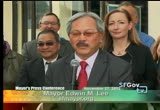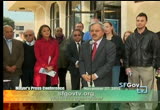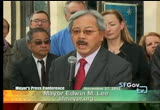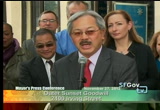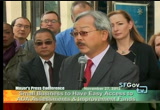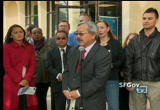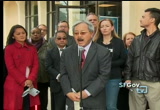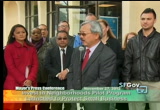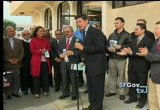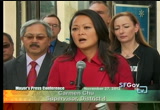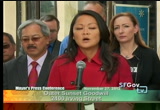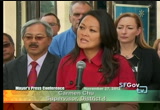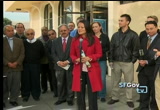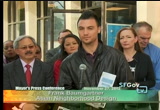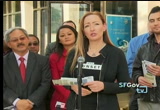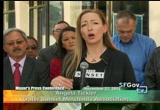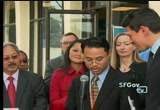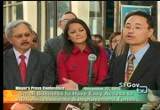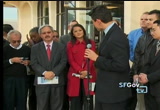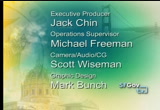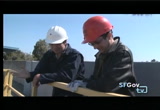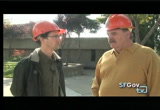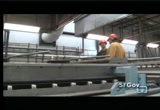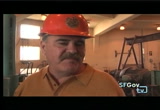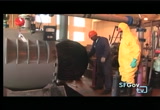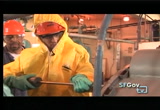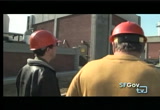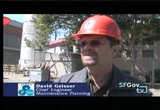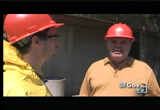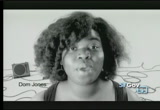tv [untitled] December 17, 2012 10:30pm-11:00pm PST
10:30 pm
>> it's great to see all of you here today. you know, earlier this year, particularly during the budget negotiations, supervisor carmen chu and i and a number of other supervisors engaged in a lot of discussions about what our neighborhood small businesses could benefit from as we saw indications of our budget recovery. and clearly we understood and have always understood the role of small businesses. and they're the backbone of the city and our office of economic development was headed by todd who is here and joaquin is helping out with the investment neighborhood strategy. we wanted to really demonstrate that, our commitment. not just by saying it, but actually doing things that would really support our small business. scott and henry and many others, benny and others who have been around us know that my favorite thing is to go to a neighborhood commercial corridor like terra val or out
10:31 pm
in the sunset noriega and have meals or breakfast or a cup of coffee and really find out all the distinctions that each neighborhood has to offer. i've been a big supporter of our commercial corridors. historically and all my different capacities. but as mayor, i think we get to do something pretty big. so, with the small business commission and regina is here today to be part of this effort, along with building inspection tom huey is here, public works as i mentioned earlier are here. all of the agencies working together with our supervisors and mayor's office have come together and put this program together and we want to announce and launch it today in front of martin lam's good will shop here because he's been a real great leader in helping many of the small businesses, and particularly those that don't speak english owned by proprietors that maybe english is not their first language. over the past couple years, supervisor chu and i have been
10:32 pm
talking about these drive-by lawsuits that have been occurring and how shocked some of these businesses are to the sometimes abusive process that are used by litigators to get at them. but in the context of overall our city's willingness to comply with a-d-a, with title 24 of the state, and our own access through our mayor's office of disability. we want everybody to comply. we don't want them to be victims of irrational and abusive lawsuits. and at the same time, we want to give them the help that they so well deserve. and, so, with the extra monies that we have, with the extra monies that supervisor chu also had and making sure that we used it wisely, we decide that had we would create this a-d-a small business access program
10:33 pm
in conjunction with asian neighborhood services and northeast credit union. we would not only provide some free assessments by certified access specialists that would come out here to the commercial corridors like irving, like noriega and taraval in our investment neighborhood strategies, they would offer these free assessments that would do the inspection and allow the small businesses to understand what all the challenges are. so, it begins with that assessment. and then with the monies that we do have, we wanted to follow-up with our sf shines programs and other programs that we have and offer a combination of grants and micro lending loan programs that are available to these businesses so they can make the corrections in an affordable way. this is our city's attempt, it is fully supported by the board of supervisors, and this program i think now has its ability to be launched and have
10:34 pm
-- really meet these access challenges in a positive way. so, we're not just avoiding lawsuits. i think we do want everybody business to be compliant, as they should be. but we're caught up sometimes with businesses that change hands. people don't know whether or not they're grandfathered in or whether or not -- how accessible it is to everybody. but we also know that there are many people who have disabilities that have also -- want to have access to the businesses all around these corridors and enjoy it as much as we do. so, i think full compliance is the goal. and to have education, to have free access assessment being done. and then to follow-up by those that are challenged economically, to have loans and to have grants that are made available to have all of them participate in this program is incredibly good for the city. and i think it will help many of the small businesses
10:35 pm
understand their obligations to respond to these better, but also help them get into compliance better. so, i'm glad to launch this program here on irving street with supervisor chu who has been a really big champion for this. but we have many members of our business community that have also been asking us to do something positive about this. and not let these small businesses become victimized in these drive-by lawsuits. to do what we can to make it a positive thing. so, i'm so glad that joaquin has come aboard to help us. he, having headed up the neighborhood services program for years, now has his talent with todd in making sure that all of the small businesses along these commercial corridors have access to our programs, have a higher degree of understanding, along with our carla johnson and our mayor's office of disability, and all the different agencies working together, we're going to make this successful. this is a family of agencies
10:36 pm
that care about our small businesses. last time i looked, there were over 71,000 businesses who registered that had less than 100 employees. that's an incredible sign of businesses that have -- that are our backbone, that hire a number of people. they're not the biggest employers, but they do hire the largest number of employees. over 51% of the city's employees are hired by small businesses. and i want to continue supporting them, nurturing them, have them increase. i hate seeing vacant, vacant buildings, vacant spots. benny knows every time we walk down there, what's going on with this site? what's going on with that site? char men chu knows that as well. we've done a lot of walks together. i want to see every one of these vacancies filled with small bustling business necessarition. we need them to hire more local folks. and one way to do it, one sure way to do it is to make sure that they meet the a-d-a requirements, the federal
10:37 pm
requirements, the state requirements, our local efforts to make sure that those that have disabilities can also shop and be a participant in our local economy. so, with that, joaquin, thank you for your leadership. we get to launch this wonderful program right here. there are three streets in district 4 that are going to benefit from this. we're going to roll this out to all other 85 neighborhood corridors in the rest of the city. it's that many? 25? [laughter] >> all right, christmas must be coming early. i'll talk to supervisor chu about any more monies we can release. thanks very much. >> thank you, mr. mayor. (applause) >> thank you. and now i'd like to bring up the supervisor, the district that we're in today, someone who is no stranger to the importance of supporting our small businesses whose family used to run a restaurant. and like to invite to speak now supervisor carmen chu. (applause)
10:38 pm
>> thank you, everyone, for being here today. i want to thank the mayor so much for coming out and launching this pilot here on irving street. as you know, when i came on board in 2007, one of the most important things we wanted to relay was how important it was to not only support our downtown businesses, but also to support all the small businesses that are located across the city in our communities. for many of the folks who come down to irving street or noriega or taraval or jude a a lot of the times people who come here who own the shops are locales are debttionv . they are people who live in our communities who want to help make our neighborhoods thrive. in 2007 when we first came on board and subsequent years, one of the things that we noticed was that there were a number of different businesses that were being targeted with some of these drive-by lawsuits. many a times when i spoke to businesses, they did not know about the requirements that they had to meet with the federal a-d-a laws. once letters came in, they didn't really know how to respond. they sort of put it away.
10:39 pm
and it was more egregious especially for our mono lingual communities and our merchants who really didn't understand the correspondence that they were seeing. and, so, it really left them in a bad position. some of the businesses found that they had to close down their shops because they simply could not afford to make the a-d-a improvements and could not afford to pay the penalties associated with that. that's something we don't want to see. especially in the last few years, i think san francisco, we have really powered through some rough years economically. i hear with many of my merchants on sirfing street here who stuck with the neighborhood, stuck with this community and have gone through tough economic times and weathered it with us. we just want to make sure that we do everything we can as a city to support them. and, so, this issue about a-d-a com playboytionv fa public libraritionv is something that been going on for quite sometime. people say in san francisco how big is this problem? we know that since 2005 there are at least 300 lawsuits that have happened about a-d-a on a-d-a compliance issues in the city and county of san francisco. this is not insignificant for a city our size. and we know that these are
10:40 pm
things that we have to address. since that time with mayor lee who has actually done a number of things, we've worked with the bar association to make sure that we have legal advice that can be given to our merchants on a very cost-effective basis. we've worked with regina and her shop with office of small business to make sure that we're doing training videos and making sure that different businesses are compliant and they know what their responsibilities are. we work with regina's shop to work with the community opportunity fund to set aside a million dollars to be directed towards improvement loans for small businesses to deal with a-d-a access issues. and i think this is sort of the next big step that the city is taking to make sure that we're supporting our small businesses in a very direct and hands on way. with this pilot, i am proud to announce that we have over $08,000 that will be going to this district to help with cast inspections. these are basically inspections of businesses to say what it is that you must do over a period of time to become compliant with a-d-a requirements and
10:41 pm
rules. and these are things that will really help our blitznesses weather any lawsuits and really plan to make sure their businesses are accessible to all san franciscans. so, today i'm very proud of that. we're going to see over 30 businesses be able to have a casp inspection. that is a very meaningful piece to be able to help them weather some lawsuits if they should come down the pipeline. in addition to that, we expect to see $70,000 in actual physical improvement grants that will be coming into the district as well. and, so, i know that the mayor will be looking very intently to see how this program works, not only in my district, but also across the way in the richmond district and see whether this is a program that we can launch even wider city-wide. so, again, i'm really, really thankful for the mayor for his investment, and his dedication to small business. we talked a lot about supporting our small businesses and a lot of times i hear a lot of lip service to it. this is actually putting your mouth, your pocket where your mouth is and actually making that investment to make sure we support our small businesses. again, i want to thank the
10:42 pm
mayor. i want to thank all of my small businesses who have weathered the years here. * and of course to all of our departments who have been absolutely phenomenal with this effort. thank you. (applause) >> all right. thank you, supervisor. and we also know that it's so important to make sure that we get the workout on the streets and we have to -- the right kind of nonprofit partners who help us achieve the goals of a program like this one is so important to our small businesses. so i'd like to invite up to speak frank baumgartner from small business economic developer to help get the word out with supervisor chu. so, frank? >> thanks, everybody, for being here. i'm with asian neighborhood design, project coordinator over there and we're a nonprofit architecture firm that's been around 40 years, specializing in improvements for small businesses and affordable housing. and we're really excited to be teamed up with osb and oewd on this venture to bring education about the importance of
10:43 pm
disabled access. and it's our aim to really make sure that all these small businesses are inclusive to all patrons with the space that has the accessible upgrades and this a-d-a compliance. thank you. (applause) >> and one of the most important parts of the program of investing neighborhoods is making sure we're listening to the needs of our neighborhood partners. and to speak to those issues, are some of the small businesses who know how important it is to make sure we're getting the word out and who want to make sure their neighbors, small business neighbors are supported. one of those people is angela tickler, the hardware store across the street who will speak to the importance of this program now. (applause) >> angela. >> good morning. i'm also the president of our local merchants association. and, so, we have done a lot of work with carmen and katie's help over the last few years trying to educate particularly
10:44 pm
our mono lingual merchants in the area how they can protect themselves against these lawsuits, which we know for a fact can close small businesses to have to close, which is a shame. * cause small businesses, in addition to hiring 51% of the people in the city, are also a huge part of the city's character and individuality, the things that make san francisco special and we want to make sure that that can keep going on. it is incredible that the mayor and carmen chu have figured out how to do this program as a small business owner myself, i am unable to afford to be able to pay for a casp inspection, yet i know how important it could be to me should a lawsuit come my way. so, i will be applying for one of these inspections and i am encouraging all my fellow merchants in this area to do the same, to try and take advantage of what is a great program that the mayor and carmen are piloting here in conjunction with those other agencies. it is important for us to be
10:45 pm
able to serve everybody in our community, but sometimes it's cost prohibitive for small merchants to be able to do that. so, we don't want to see people going under by not being able to comply. so, this program will be really important to our merchants as well as others across the city and i hope and think it will be very, very successful. thank you. (applause) >> i want to thank you so much, angela, and for all your leadership as the president of the outer sunset mission and professional association here in the neighborhood. so, thank you. (applause) >> as we said, we want to make sure that we're reaching everyone in a culturally competent way through the program. to speak to that, the partner has done a lot of that work reaching up and down corridors like this one here. that's martin lam from good will. so, martin, if you could come up and speak. >> thank you, thank you very much. (applause) >> hi, on behalf of good will industry, i would like to -- i'm very honored to thank mayor ed lee and supervisor carmen chu for setting aside $400,000 to help local businesses to
10:46 pm
become a-d-a compliant. we filed with supervisor chu's office in the past to make sure we get the word out, make sure they know how to do the a-d-a -- more update for the a-d-a. and a lot of our businesses, most of our neighbors in this community are small businesses, mom and pop stores and who don't have a lot of cash flow every month. so, we are very grateful for the mayor and supervisor's office for giving us the support. as you know, lawsuits can mean for a business that they have to close down if they don't have the cash to defend themselves hiring a lawyer. so, this past year alone, a lot of the small businesses actually have to move out of the city because of people doing drive-by lawsuits. here at the good will industry we are very grateful and one of our mission is to help people
10:47 pm
to create job opportunities for people who come here and work. so, one of the things that we care for is creating jobs in the city and preserving jobs in the city. so, last year we were able to have about 7,000 people just to come by and to shop for us and to provide job opportunities and training opportunities throughout our missions and our [speaker not understood]. once again, i want to thank the mayor and carmen chu for helping us to get this funding. thank you. (applause) >> thank you all again so much for coming out. as you can see, this is a team effort so we can have the most and strongest collective impact in corridors like these and like the one investing in the neighborhoods program. i know the supervisor was very excited to get this program up and running right away. she'll be joining with the job squad member who has recently come onto the investing neighborhoods team, members of the office of small business to make sure we're getting the word out about this program
10:48 pm
right now. so, i just want to say thank you to all of you, to rob black from the restaurant association, benny yee to being here, our merchants, our neighbors and all the city partners who really believe in supporting the businesses and of course to todd from the office of economic and work force development, supervisor chu and our mayor ed lee. thank you so much for this opportunity to help out our small businesses in our community. thank you very much and we'll be available for questions later on. thanks. (applause) ...
10:49 pm
because we have a great waste water system here in san francisco, we do about 80 million gallons of waste water here in san francisco, which means we basically fill up 120 olympic sized swimming pools each and every day here in the city. we protect public health and safety and environment because we are discharging into the bay and into the ocean. this is essentially the first treatment here at our waste water treatment facility. what we do is slow down the water so that things either settle to the bottom or float to the top. you see we have a nice selection of things floating around there, things from bubble gum wrappers, toilet paper, whatever you dump down the toilet, whatever gets into our storm drains, that's what
10:50 pm
gets into our waste water treatment and we have to clean. >> see these chains here, this keeps scum from building up. >> on this end in the liquid end basically we're just trying to produce a good water product that doesn't negatively impact the receiving water so that we have recreation and no bad impact on fish and aquatic life. solids is what's happening. . >> by sludge, what exactly do you mean? is that the actual technical term? . >> it's a technical term and it's used in a lot of different ways, but this is organic sewage sludge. basically what it is is, oh, maybe things that come out of your garbage disposal, things
10:51 pm
that are fecal in nature. it's sludge left in the water after the primary treatment, then we blend those two over and send them over to digestion. this building is built to replace tanks here that were so odoriferous they would curl your hair. we built this as an interim process. >> is there a coagulant introduced somewhere in the middle of this? . >> this coagulant brings solids together and lets the water run through. that gives us more time in the digestion process, more time to reduce the amount of solids. these are the biggest ones in the world, like we always like to do in san francisco. they are 4 meter, there's none like it in the world. >> really? wow. >> three meters, usually. we got the biggest, if not the
10:52 pm
best. so here we are. look at that baby hum. river of sludge. >> one of the things is we use bacteria that's common in our own guts to create this reduction. it's like an extra digestion. one of the things we have to do to facilitate that is heat that sludge up and keep it at the temperature our body likes, 98.6 degrees. >> so what we have here is the heat exchanger for digester no. 6. these clog up with debris and we're coming in to -- next wet weather season so we always come through here, clean them out, make sure that we get maximum heat exchange during the colder wet weather. sludge season. >> rubber glove. >> right here. >> rubber glove, excellent. all right, guys.
10:53 pm
>> thank you. >> good luck. >> this is the full on hazmat. . >> residual liquid. we're taking it time to let it drain. we don't want to get sludge on it necessarily. take your time. stand on the side of it. . >> should we let it release for a while? . >> let it release. >> is that the technical term? . >> this is the most important bolt on the whole thing. this is the locking bolt. it locks this thing right in place. so now. >> take your hammer and what we want to do, we get rag build up right in here.
10:54 pm
the hot water recirculates right in here, the sludge recirculates in here. the sludge sometimes has rags in it. all we want to do is go around the clean the rags. let me show you how. take the slide hammer, go all the way through the back, go around. >> got you. >> during the real rainy season, how does that change the way dealing with this job? is it a lot more stuff in there? . >> what we do, charles, we do this quarterly. every four months we go around and clean all the heat exchangers so we don't have a large build up. . >> go around? . >> yeah.
10:55 pm
(sound of hammering). >> what i'm trying to do, charles, is always pull it out on the low stroke. >> right. so you are not, like, flying out. now talk about clean up. . >> then where does this stuff get deposited? . >> we're going to dump it in a debris box and it will go back to the plant. >> if you think back, the romans came up with a system of plumbing that allowed us it use water to transport waste away from the hub of civilization, which enabled cities to grow. . >> you have a large bowl, a drive motor and another motor
10:56 pm
with a planetary gearbox with differential pressure inside there. the large mass up there spinning separating the solids from the liquid. we have to prevent about once a month, we go in there grease those, change the oil, check the vibration levels. the operators can tell just by the hum of that machine that it's a harmonic noise emitted that it's out of balance and the machine needs to be cleaned. it will start vibrating and we have vibration analysis machines that will come over here and check the levels. so it's kind of an on-going thing that you have to stay on top of on a daily basis. >> handled properly, you take organic residuals, as we call them, that are leftovers of our society and turn them back into
10:57 pm
some energy. and we have another ability to take that sludge and get a nutrient value for crops there. we actually are running a kind of composting energy recovery system. >> well, this is a dirty job. we try to do it safely and we try to do it without imposing too much on the public. people want to flush their toilets and have things go away and not be bothersome again. we do a lot to try to accomplish that. i'd like to invite you to come back any time you want. once you got this in your blood, you are not going to be able to stay away. the raging waters are fun and when we do digester cleaning i really hope you can come back. that's quite a sight. >> yeah, that sounds interesting. >> i really appreciate you coming by and it was a
58 Views
IN COLLECTIONS
SFGTV: San Francisco Government Television Television Archive
Television Archive  Television Archive News Search Service
Television Archive News Search Service 
Uploaded by TV Archive on

 Live Music Archive
Live Music Archive Librivox Free Audio
Librivox Free Audio Metropolitan Museum
Metropolitan Museum Cleveland Museum of Art
Cleveland Museum of Art Internet Arcade
Internet Arcade Console Living Room
Console Living Room Books to Borrow
Books to Borrow Open Library
Open Library TV News
TV News Understanding 9/11
Understanding 9/11